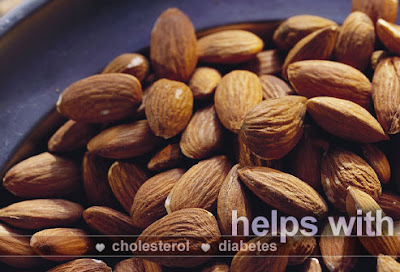
Fresh Herbs
Fresh herbs make many other foods heart-healthy when they replace salt, fat, and cholesterol. These flavor powerhouses, along with nuts, berries — even coffee — form a global approach to heart-wise eating. Read on for 23 more delicious ways to fight heart disease, stroke, high blood pressure, high cholesterol, and diabetes.
Fact: Rosemary, sage, oregano, and thyme contain antioxidants.

Black Beans
Mild, tender black beans are packed with heart-healthy nutrients including folate, antioxidants, magnesium for lowering blood pressure, and fiber — which helps control both cholesterol and blood sugar levels.
Tip: Canned black beans are quick additions to soups and salads. Rinse to remove extra sodium.
Salmon: Super Food
A top food for heart health, it's rich in the omega-3s EPA and DHA. Omega-3s lower risk of rhythm disorders, which can lead to sudden cardiac death. Salmon also lowers blood triglycerides and reduces inflammation. The American Heart Association recommends two servings of salmon or other oily fish a week.
Tip: Bake in foil with herbs and veggies. Toss extra cooked salmon in fish tacos and salads.
Tuna for Omega-3s
Tuna is a good source of heart-healthy omega-3s; it generally costs less than salmon. Albacore (white tuna) contains more omega-3s than other tuna varieties. Reel in these other sources of omega-3s, too: mackerel, herring, lake trout, sardines, and anchovies.
Tip: Grill tuna steak with dill and lemon; choose tuna packed in water, not oil.
Extra Virgin Olive Oil
This oil, made from the first press of olives, is especially rich in heart-healthy antioxidants called polyphenols, as well as healthy monounsaturated fats. When olive oil replaces saturated fat (like butter), it can help lower cholesterol levels. Polyphenols may protect blood vessels.
Tip: Use for salads, on cooked veggies, with bread. Look for cold-pressed and use within six months.
Walnuts
A small handful of walnuts (1.5 ounces) a day may lower your cholesterol and reduce inflammation in the arteries of the heart. Walnuts are packed with omega-3s, monounsaturated fats, and fiber. The benefits come when walnuts replace bad fats, like those in chips and cookies – and you don't increase your calorie count.
Tip: A handful has nearly 300 calories. Walnut oil has omega–3s, too; use in salad dressings.
Almonds
Slivered almonds go well with vegetables, fish, chicken, even desserts, and just a handful adds a good measure of heart health to your meals. They're chock full of vitamin E, plant sterols, fiber, and heart-healthy fats. Almonds may help lower LDL cholesterol and reduce the risk of diabetes.
Tip: Toast to enhance almonds' creamy, mild flavor.
Edamame
These green soybeans are moving beyond Japanese restaurants, where they're a tasty appetizer. They're packed with soy protein, which can lower blood triglyceride levels. A half cup of edamame also has 9 grams of cholesterol-lowering fiber — equal to four slices of whole-wheat bread.
Tip: Try frozen edamame, boil, and serve warm in the pod.
Tofu
Make soy protein the main attraction more often at dinnertime by cooking with tofu instead of red meat. You gain all the heart-healthy minerals, fiber, and polyunsaturated fats of soy — and you avoid a load of artery-clogging saturated fat.
Tip: Chop firm tofu, marinate, then grill or stir-fry, going easy on the oil. Add tofu to soups for protein with no added fat.
Sweet Potatoes
Sweet potatoes are a hearty, healthy substitute for white potatoes for people concerned about diabetes. With a low glycemic index, these spuds won't cause a quick spike in blood sugar. Ample fiber, vitamin A, and lycopene add to their heart-healthy profile.
Tip: Enhance their natural sweetness with cinnamon and lime juice, instead of sugary toppings.
Oranges
This sweet, juicy fruit contains the cholesterol-fighting fiber pectin — as well as potassium, which helps control blood pressure. A small study shows that OJ may improve blood vessel function and modestly lower blood pressure through the antioxidant hesperidin.
Tip: A medium orange averages 62 calories, with 3 grams of fiber.
Carrots
The latest research on carrots shows these sweet, crunchy veggies may help control blood sugar levels and reduce the risk of developing diabetes. They're also a top cholesterol-fighting food, thanks to ample amounts of soluble fiber — the kind found in oats.
Tip: Sneak shredded carrots into spaghetti sauce and muffin batter.
Oatmeal
Oats in all forms can help your heart by lowering LDL, the bad cholesterol. A warm bowl of oatmeal fills you up for hours, fights snack attacks, and helps keep blood sugar levels stable over time — making it useful for people with diabetes, too.
Tip: Swap oats for one-third of the flour in pancakes, muffins, and baked goods. Use oats instead of bread crumbs in cooking.
Low-Fat Yogurt
While low-fat dairy is most often touted for bone health, these foods can help control high blood pressure, too. Milk is high in calcium and potassium and yogurt has twice as much of these important minerals. To really boost the calcium and minimize the fat, choose low-fat or non-fat varieties.
Tip: Use milk instead of water in instant oatmeal, hot chocolate, and dried soups.
Blueberries
The list of healthy nutrients in blueberries is extensive: anthocyanins give them their deep blue color and support heart health. Blueberries also contain ellagic acid, beta-carotene, lutein, vitamin C, folate, magnesium, potassium, and fiber.
Tip: Add fresh or dried blueberries to cereal, pancakes, or yogurt. Puree a batch for a dessert sauce.














No comments:
Post a Comment